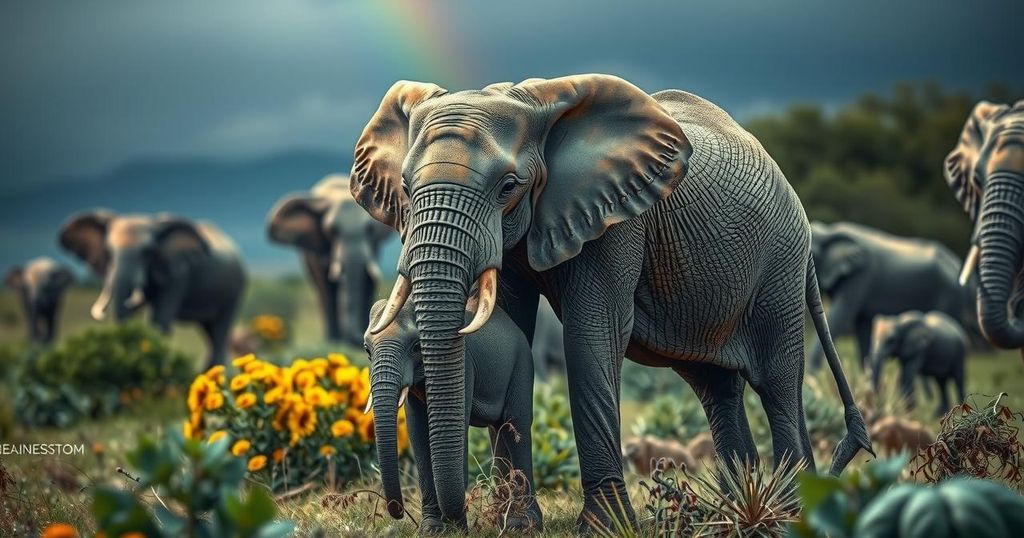A King’s College London study revealed that climate change-induced toxic algal blooms led to the deaths of 350 elephants in Botswana in 2020. A drastic weather shift from drought to heavy rains stirred up toxins in waterholes, posing significant threats to wildlife. The research emphasizes the need for improved water quality monitoring to prevent future occurrences of such disasters.
In a groundbreaking study, researchers from King’s College London utilized satellite imagery to conclude that toxic algae blooms, exacerbated by climate change, were responsible for the deaths of 350 elephants in Botswana during 2020. This unprecedented event raised alarms worldwide, igniting concerns regarding ecological shifts as extreme weather patterns shifted drastically from prolonged drought to intense rainfall. Researchers identified that the algal blooms formed after heavy rains disturbed nutrient-rich sediments, leading to toxic conditions in the waterholes elephants frequented. Evidence indicated that elephants traveled an average of 16.5 kilometers from these contaminated water sources before succumbing to the effects of the toxic algae within approximately three days of exposure. The implications of this findings extend beyond this single incident, suggesting heightened risks to wildlife as the region faces increasing drought and heat due to climate change. The researchers emphasized the importance of developing comprehensive surveillance systems for water quality to avert similar catastrophic events in the future.
The phenomenon of toxic algal blooms represents a growing ecological concern, particularly in vulnerable ecosystems like the Okavango Delta. Climate change, characterized by shifting precipitation patterns and rising temperatures, threatens the delicate balance of such environments, leading to potentially catastrophic consequences for local wildlife. The drastic transition from a severe drought in 2019 to heavy rains in 2020 created perfect conditions for algal proliferation, which subsequently affected the water quality and health of elephants and other wildlife dependent on these water sources.
The tragic mortality event of elephants in Botswana underscores the intricate relationship between climate change and wildlife health. Evidence from the satellite monitoring revealed a direct correlation between climate-induced environmental changes and the health risks posed to wildlife. To mitigate future risks and protect vulnerable species, there is an urgent need for enhanced water quality monitoring and proactive management strategies in similar ecosystems facing climate threats.
Original Source: scienceblog.com






